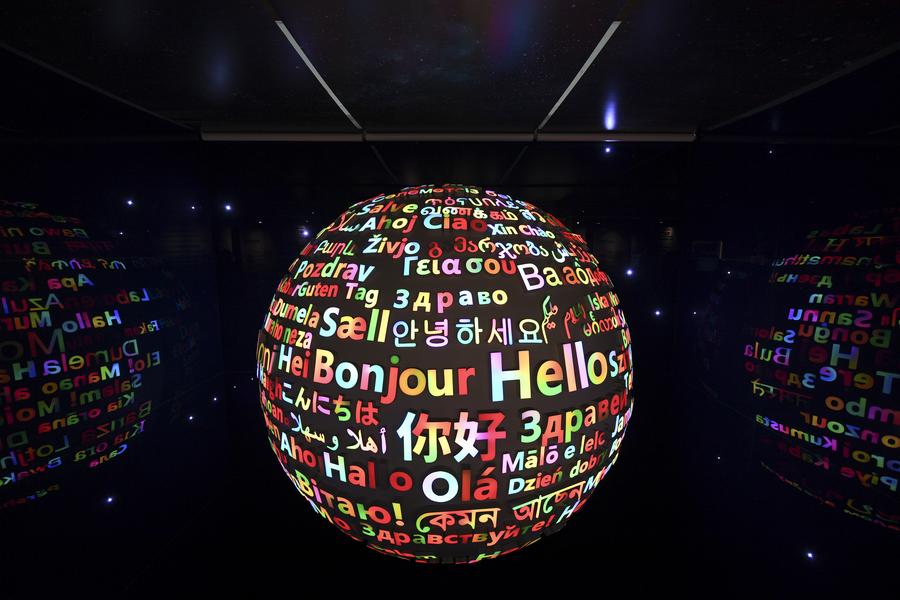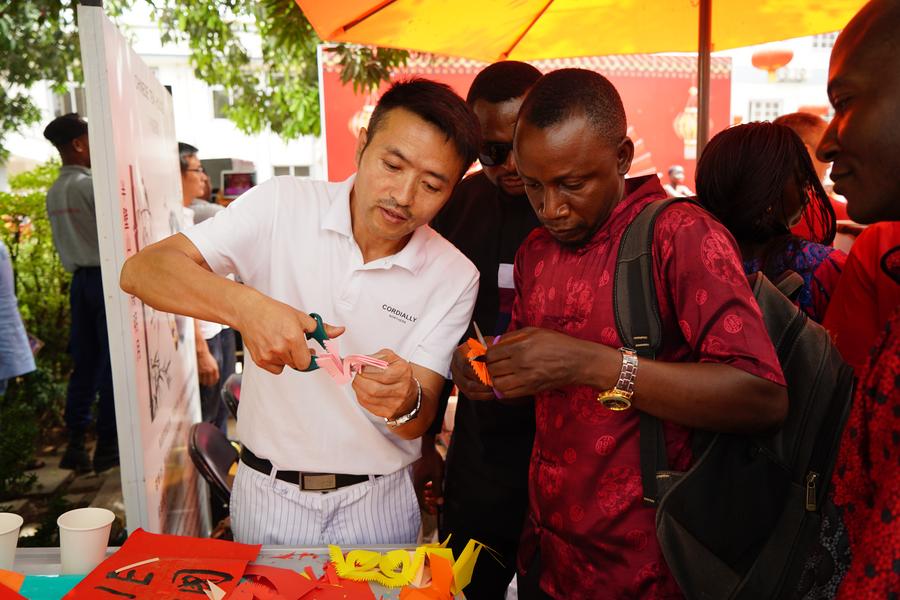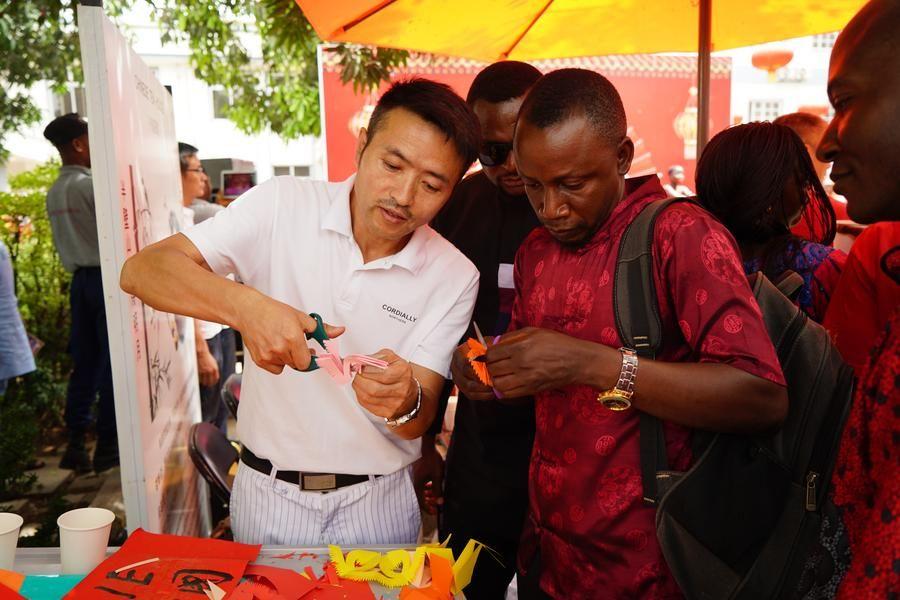This photo taken on May 13, 2024 shows an installation at the World Language Museum of Beijing Foreign Studies University in Beijing, capital of China. (Xinhua/Chen Zhonghao)
Both Dr. Sinkinesh and Li continue to enrich the academic and cultural landscapes in their fields, underscoring the role of cultural and people-to-people exchanges in building a brighter future for China and Africa.
BEIJING, Sept. 5 (Xinhua) -- In September 2015, Dr. Sinkinesh Atale, an Amharic foreign expert from Ethiopia, arrived in China to teach at Beijing Foreign Studies University (BFSU) as part of a memorandum of understanding between Addis Ababa University and BFSU.
"I saw it as an opportunity to visit China. After I came, I fell in love with the country," she recalled.
Over the past nine years, Dr. Sinkinesh has taught over 250 Chinese students, describing her relationship with them as akin to that of a "mother and her children." In her free time, she enjoys visiting Beijing's parks with her students, further strengthening their relationships.
In 2020, BFSU began enrolling undergraduate students majoring in Amharic. As of June 2024, the first batch of 11 students had graduated. Some continued their studies in African research, while others joined Chinese companies operating in Africa, contributing to China-Africa people-to-people exchanges.
Recalling her time spent on teaching Ethiopian dances and songs, she expressed how touched she was by the enthusiasm and friendliness of her Chinese students, saying, "I already miss them."
Captivated by China's rich culture and dedication to preserving its ancient traditions, she has visited the Great Wall six times, which she admires as a symbol of the Chinese people's wisdom, devotion, and strength.
She is also intrigued by traditional Chinese medicine and techniques like acupuncture and massage, which she describes as "incredible wisdom."
Beyond her teaching duties, Dr. Sinkinesh has also played a key part in fostering China-Ethiopia cultural exchanges.
She has co-authored Amharic language textbooks for Chinese students and translated works on Chinese culture into Amharic. Currently, she is working on a comparative study of Chinese and Amharic proverbs.
"We (Ethiopians) have our own characters and calendar like the Chinese do," she said, noting that Ethiopia is a country with ancient history and wisdom. "We need to share these with China and learn from each other."
As Dr. Sinkinesh prepares to welcome a new batch of students this September, she remains committed to her mission of deepening China-Africa people-to-people exchanges.
"I plan to continue working in China, teaching both the language and culture of Ethiopia, while also studying Chinese civilization, culture, and art," she said.
People try paper-cutting at an annual temple fair, a traditional cultural event featuring all kinds of Chinese folk art, in Abuja, Nigeria, Feb. 3, 2024. (China Cultural Center in Abuja/Handout via Xinhua)
Michael, known by his Chinese name Li Mingcheng, has also made China his second home.
Inspired by his father's business ties with Chinese friends, the 29-year-old Nigerian arrived in China in 2018 to study at Shandong University.
"Spending time with them made me curious about the Chinese language and culture, so I decided to come to China," he said.
In 2020, Li began his PhD at the School of African Studies at BFSU and graduated this year. In September, he will return to BFSU for postdoctoral research, focusing on China-Africa relations, French-speaking countries, and the Belt and Road Initiative.
Reflecting on his six years in China, he said, "I've experienced quite a lot of the culture. Celebrating the Spring Festival with a Chinese friend's family in Shandong made me feel less alone in a foreign country."
For four years, Li has been part of his school's football team and called his teammates "Xiong Di" (brothers). He has also embraced Chinese culture, learning Tai Chi and Chinese calligraphy, proudly displaying his work in his dormitory.
Despite his deep connection with China, Li holds on to his Nigerian roots, particularly his love for coffee, which he likens to China's tea culture. "I compare Africa and China to coffee and tea -- when they blend, a new flavor emerges," he said.
Looking ahead, Li hopes to contribute to China-Africa relations through research or diplomacy. "Being in China changed my life," he said. "I hope we can learn a lot from our Chinese partners to help with Africa's development."
Both Dr. Sinkinesh and Li continue to enrich the academic and cultural landscapes in their fields, underscoring the role of cultural and people-to-people exchanges in building a brighter future for both continents.
"I want to establish an Ethiopian study center at BFSU and a Chinese study center at Addis Ababa University," said Dr. Sinkinesh. "Our story is still being written."






 A single purchase
A single purchase









